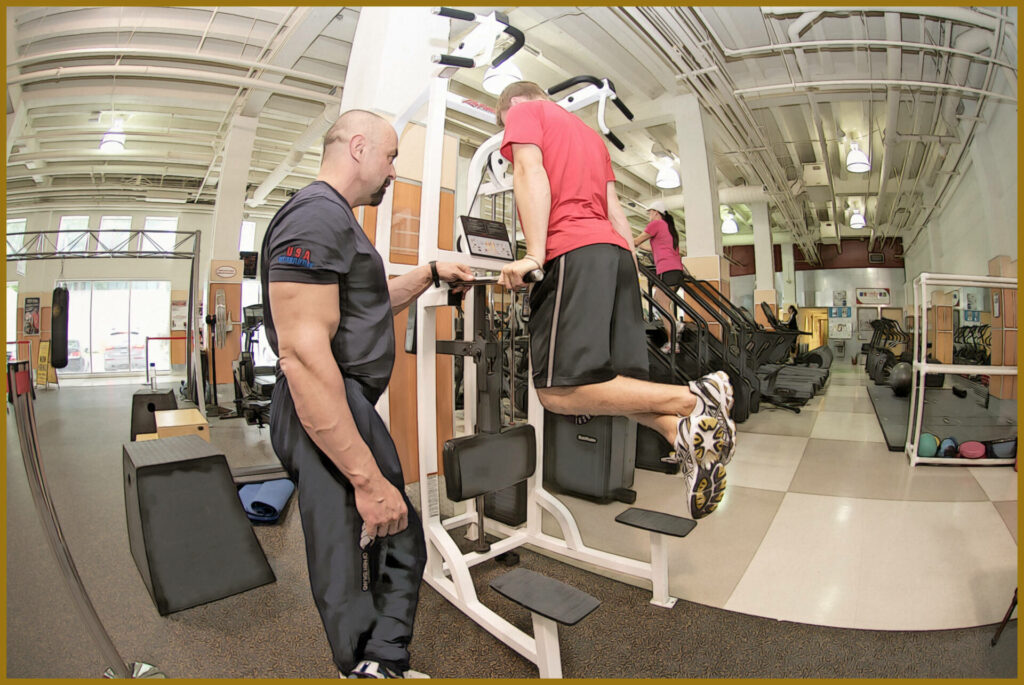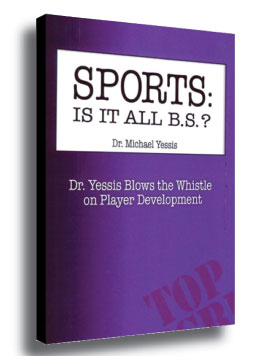STRENGTH SENSEI BOOKSHELF
SPORTS: IS IT ALL B.S.?
A sports scientist’s critical look at athletic fitness training
Dr. Michael Yessis has worn many hats over the past 90 years. He was a university professor for 35 years, a writer, a biomechanist, and a strength and conditioning coach. He’s worked with numerous amateur athletes and professional sports teams, wrote 17 books and over 2,000 articles, and was a regular contributor to Muscle & Fitness. He wears one more hat: Whistleblower!
Yessis’ book SPORTS: IS IT ALL B.S.? comes with the following subtitle: Dr. Yessis Blows the Whistle on Player Development. Although published in 2006, it is still a good summary of many of Yessis’ ideas on how to train athletes.

A word of warning: Yessis often rubs his colleagues in sports science and strength coaching the wrong way as his ideas are rather dogmatic and his research tends to be limited to that produced in Eastern Bloc countries about a half-century ago. He will rarely endorse another strength coach’s program unless he worked with him, nor any other books on strength and conditioning. There’s another issue.
To promote his products and services, Yessis often makes sweeping, derogatory comments about the strength coaching profession. During an interview with Dr. Mike Israetel four years ago, Yessis said that the training methods he discovered in the 70s and 80s from Eastern Bloc countries are superior to that being produced today. Consider this statement about the current state of the strength and conditioning profession:
“I’m really disappointed in our level of expertise and the information being disseminated,” says Yessis. “I haven’t seen any progress in terms of new advancements…new things happening.” Seriously – nothing new?

Another issue, and you will find this practice throughout this book, is that Yessis often goes a bit overboard with self-promotion. For example, in this chapter on golf, he recommends the book Explosive Golf he wrote and provides a negative opinion of the content in Golf Digest and Golf Magazine. And his recommended reading list in the final chapter only lists six books – all that he wrote!
“Chapter 2: Bull That Has Been Perpetuated for Many Years” forms the base of Yessis’ arguments that apply to all sports. Here are 15 common ideas that he says should be considered myths:
- Athletes are born, not made.
- It’s all in the genes.
- Speed cannot be improved.
- If it ain’t broke, don’t fix it.
- The key to success is to play more.
- To be the best you must play year round in your selected sport.
- You can’t be great without the use of steroids and/or other drugs.
- You must work on greater flexibility to prevent injury.
- You need specialized shoes for your sport.
- Coaches use science to give legitimacy to their training.
- The key to a winning team is a good coach.
- Coaches teach game skills.
- Injuries are unavoidable.
- Coaches are interested in improving performance.
- To be a better player you must develop greater strength and muscle mass.
From here, Yessis examines issues in athletic development with baseball, basketball, football, golf, and football. He presents many of his arguments in the form of myths as in Chapter 2, and often he believes the issues stem from a poor understanding of biomechanics. Consequently, much of the content in the book would be of little interest to a strength coach or personal trainer.
Although Yessis makes some interesting observations about optimal sports techniques, some of his training ideas wouldn’t fly with those of Charles R. Poliquin. For example, in the basketball chapter, Yessis explores the “well-ingrained belief” that you cannot increase jump height. Who are the strength and sports coaches who made this bizarre statement? He also makes some odd observations, saying that most basketball players have calves and thighs that “are not well hypertrophied…but they are explosive.” Seriously? (FYI: A half-century ago Arthur Jones became one of the first bodybuilding writers to discuss how tendon length can influence muscle hypertrophy. His entire body of work can be found on authurjonesexercise.com.)
Dr. Michael Yessis has spent a lifetime devoted to studying sports performance and strength and conditioning. He has a lot to say, some of it makes a lot of sense and some of it…well, doesn’t. To quote one of the Strength Sensei’s favorite quotes from Bruce Lee, “Adapt what is useful, reject what is useless, and add what is specifically your own.” (TSS)
[You can purchase SPORTS: IS IT ALL B.S.? by Dr. Michael Yessis through Amazon.com.)
